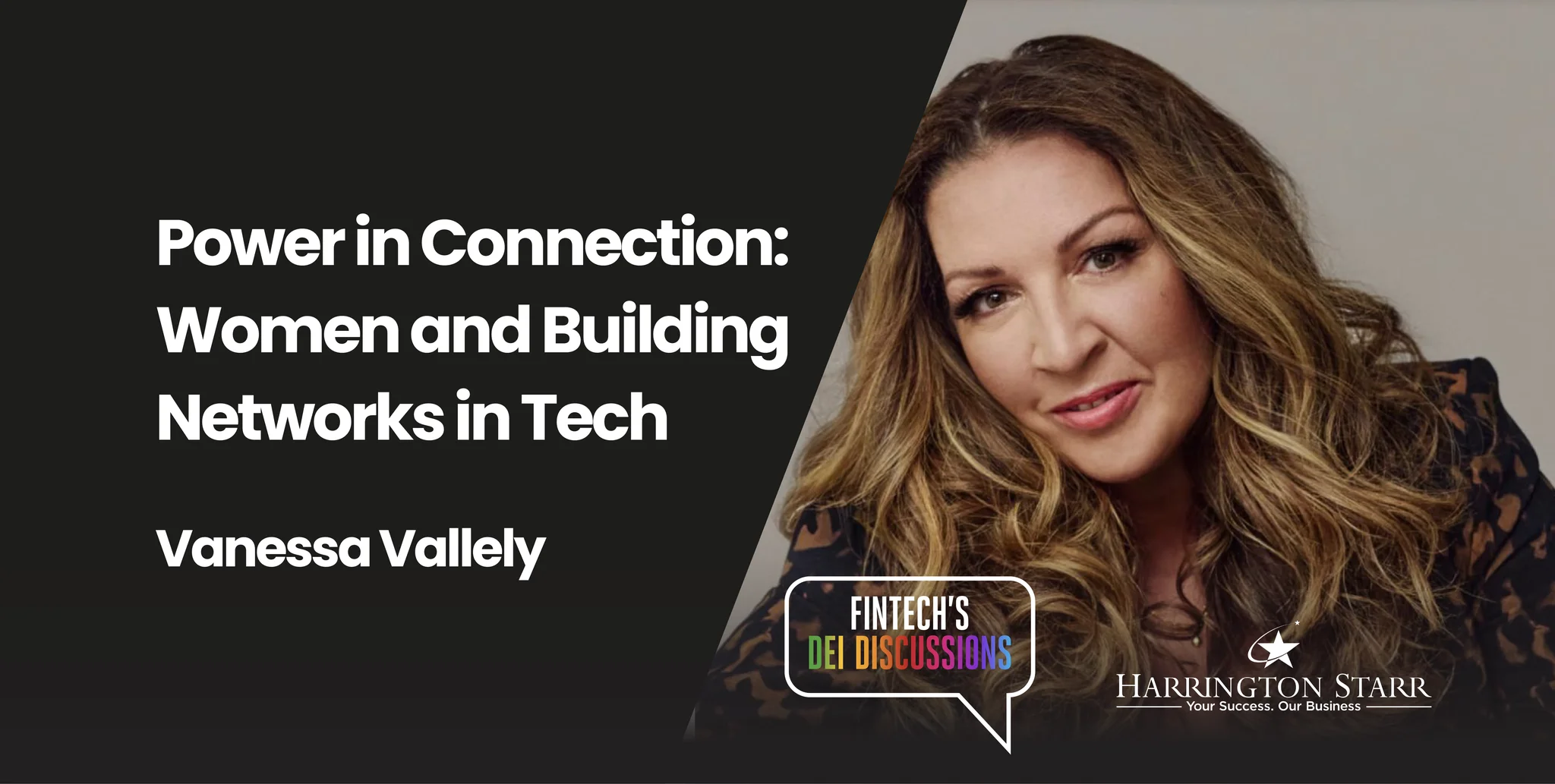Gender diversity in fintech has made notable strides, particularly at the middle management level. We now see significantly more women stepping into mid-to-senior roles, especially within marketing, analytics, and design. However, a significant gap remains at the leadership and C-suite levels, where men still dominate the majority of positions. The leap from middle management to senior leadership is a crucial stage where many women encounter difficulties, often due to entrenched perceptions of what defines effective leadership.
The Promotion Paradox: Perception vs. Performance
The journey from middle management to senior leadership is not just about performance; it’s heavily influenced by perception. In many fintech organisations, the decision to promote someone to a leadership role hinges on whether they are seen as a leader by the existing senior leadership team. This is where the challenge lies for many women. If senior leadership is predominantly male, the qualities they associate with effective leadership are often those traditionally seen as "male"—assertiveness, confidence, visibility, and the ability to provide strong, direct feedback. As a result, women are often forced to adapt to these expectations, showcasing traits that may feel unnatural to them in order to progress.
Redefining Leadership in Fintech
To truly advance gender diversity in fintech leadership, it's crucial to redefine what effective leadership looks like. While women often bring valuable qualities to the table, these attributes can be misunderstood or undervalued through a male-centric lens. For instance:
Empathy and Emotional Intelligence: While women often excel in understanding and fostering team relationships, this strength can be misinterpreted as being overly nurturing or soft, rather than being seen as a strategic tool that drives collaboration and innovation.
Collaborative Leadership: Women’s emphasis on collaboration and inclusion may be perceived as indecisiveness or a lack of authority, rather than a deliberate effort to ensure diverse perspectives are integrated into decision-making.
Balanced Strategic Vision: A balanced approach to strategy, where women pay close attention to details and consider long-term impacts, can be dismissed as over-cautiousness, overlooking the value of thorough planning and foresight in achieving sustainable success.
Transparent Communication: Clear and transparent communication, paired with active listening, is a hallmark of female leadership. However, this can be misconstrued as a lack of assertiveness, rather than being recognised as a means to foster trust, openness, and strong team dynamics.
Customer Focus: Women’s strong advocacy for customer needs and commitment to integrating feedback might be seen as being too focused on the immediate or operational aspects, rather than the bigger picture. Yet, this approach is crucial in ensuring that products and services are truly aligned with market demands and customer satisfaction.
Recognising and valuing these diverse leadership qualities can create a more inclusive environment that allows different styles of leadership to thrive. This shift not only supports the advancement of women but also leads to better business outcomes. Diverse leadership teams bring varied perspectives that drive innovation, enhance problem-solving, and improve overall performance, ultimately benefiting the organisation’s bottom line.
What Can Be Done to Improve the Situation?
Increasing Female Representation in Leadership: The most effective way to shift perceptions of leadership is to have more women in senior leadership positions. As women demonstrate diverse leadership styles at the top, they naturally pave the way for other women to follow, using their inherent leadership qualities rather than conforming to traditional male expectations.
Re-evaluating Leadership Perceptions: It’s crucial for everyone in leadership, particularly those in decision-making positions, to reflect on their own perceptions of leadership. Where do these ideas come from? Are they excluding certain qualities that are just as effective? By broadening the definition of what it means to be a good leader, organisations can open the door for more women to ascend to senior roles based on their authentic leadership styles.
Conclusion
The path to gender parity in fintech leadership is complex, requiring a fundamental shift in how leadership is perceived and valued. By challenging the traditional male-dominated view of leadership and embracing a more inclusive approach, fintech companies can help more women break through the glass ceiling. This evolution not only benefits women but enriches the entire industry, fostering a leadership culture that is as diverse and dynamic as the market it serves.
By Asya Kuznetsova, Senior Product Manager at Wise
Want to Learn More About Women in Senior Leadership and Diversity in FinTech?
The article above highlights a critical issue in the FinTech space: while progress has been made in increasing gender diversity at the middle management level, the gap remains significant at the senior leadership and C-suite levels. Women face unique challenges as they navigate the leap from middle management to leadership roles, often due to entrenched perceptions of leadership qualities that are traditionally male-dominated.
As discussed, many #WomeninFinTech encounter obstacles not related to their performance but to the way leadership is perceived in their organisations. Qualities like empathy, collaborative leadership, and customer focus are undervalued in comparison to assertiveness, confidence, and visibility. To challenge these outdated views and create more inclusive pathways for women to ascend to senior roles, we need to broaden our understanding of effective leadership.
For more in-depth discussions on how to break down these barriers and promote gender diversity in senior roles, FinTech’s DEI Discussions podcast offers invaluable insights. Hosted by Nadia Edwards-Dashti, Chief Customer Officer at Harrington Starr, the podcast tackles some of the most pressing issues around diversity, equity, and inclusion (DEI) in financial services, including the very challenges women face in reaching leadership positions.
What Does FinTech’s DEI Discussions Cover?
The podcast frequently addresses the themes explored in the article, with a focus on how FinTech organisations can support women’s advancement to senior roles. Guests include Founders, CEOs, and senior executives who have successfully overcome these barriers, as well as DEI advocates who are actively working to redefine leadership standards within the industry. By sharing their personal journeys, these leaders provide real-world strategies on how to elevate more women into decision-making positions and transform the culture of leadership in FinTech.
Here are just a few of the relevant topics FinTech’s DEI Discussions explores that directly connect to the issues highlighted in this article:
Redefining Leadership Perceptions: Just as the article outlines, traditional perceptions of leadership often hold women back. FinTech’s DEI Discussions features episodes that challenge these views, showing how qualities like empathy, emotional intelligence, and transparency—often seen as "soft" skills—are actually crucial for modern, effective leadership. By highlighting women who lead with these attributes, the podcast encourages organisations to rethink what it means to be a good leader.
Creating Inclusive Pathways for Promotion: The article points to the “promotion paradox,” where women are judged not just on performance but on whether they conform to existing male-dominated perceptions of leadership. On the podcast, industry leaders discuss how FinTech companies can develop more equitable promotion processes that recognise diverse leadership styles and provide women with the opportunities they need to rise to the top.
Empathy and Collaborative Leadership: As highlighted in the article, empathy and collaboration—strengths often associated with female leaders—are critical in fostering innovation and driving team success. Yet these qualities are frequently misunderstood or undervalued. In several episodes of FinTech’s DEI Discussions, guests explore how these attributes contribute to better business outcomes and why they should be considered essential to leadership roles, not secondary to more traditionally "male" traits.
Building a Diverse Leadership Team: The article makes clear that diverse leadership teams drive better performance and innovation. This is a recurring theme on the podcast, where guests share how they have successfully integrated diverse perspectives at the leadership level to enhance decision-making, problem-solving, and overall company success. These conversations provide actionable advice on how FinTech companies can actively promote women into senior roles and build leadership teams that reflect a broader range of voices.
Why Women’s Leadership Matters in FinTech
As the article demonstrates, advancing more women into senior leadership roles is not just about closing a gender gap—it’s about fostering a leadership culture that embraces diverse approaches and styles. This is especially important in FinTech, where the ability to innovate and stay competitive depends on diverse thinking and leadership. Women’s leadership brings unique perspectives that are often aligned with long-term strategic vision, customer focus, and team collaboration—qualities that are essential for driving growth in the modern FinTech landscape.
FinTech’s DEI Discussions reinforces this by showcasing how companies that prioritise diversity in leadership see tangible business benefits, from improved product innovation to stronger customer relationships. By featuring female leaders who have broken through the glass ceiling and male allies who are actively supporting gender diversity, the podcast provides a platform for amplifying these success stories and encouraging more organisations to take meaningful steps toward gender parity at the top.
How to Create Change
The article concludes by emphasising the need for a fundamental shift in how leadership is perceived and valued in FinTech. FinTech’s DEI Discussions aligns with this by offering practical, actionable advice for organisations looking to drive change. Guests discuss how companies can:
Increase Female Representation at the Leadership Level: Many episodes focus on how to build a pipeline of female talent from middle management to senior leadership, ensuring that women are not just represented but empowered to succeed at the highest levels.
Reevaluate Leadership Qualities: By broadening the definition of leadership beyond traditional male-centric traits, organisations can open doors for more women to ascend to senior roles. The podcast highlights how companies can shift their perceptions and embrace diverse leadership styles that benefit the entire business.
Foster Inclusive Cultures: Creating an inclusive culture is key to retaining and promoting diverse talent. The podcast explores how empathy, collaboration, and transparency in leadership—often exhibited by women—are essential for building a culture where all employees feel valued and included.
For a deeper dive into how we can create a more inclusive and equitable future for #WomeninFinTech leadership, don’t miss FinTech’s DEI Discussions. Hosted by Nadia Edwards-Dashti, the podcast is an award-winning show that offers valuable perspectives from industry leaders who are championing DEI in financial services and technology.
New episodes are released every Tuesday and Thursday, and you can listen on all major podcast platforms. Whether you’re a business leader, DEI advocate, or professional looking to advance in FinTech, FinTech’s DEI Discussions provides the insights and inspiration needed to help you succeed in a rapidly evolving industry.
Discover more episodes and learn how to break through the leadership ceiling by visiting FinTech's DEI Discussions.









